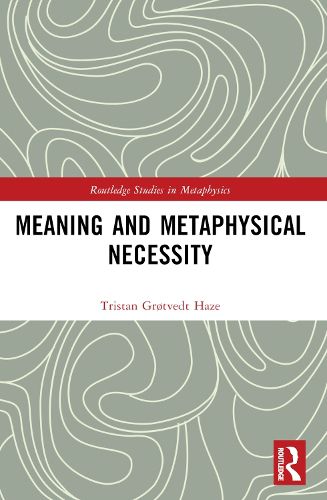Readings Newsletter
Become a Readings Member to make your shopping experience even easier.
Sign in or sign up for free!
You’re not far away from qualifying for FREE standard shipping within Australia
You’ve qualified for FREE standard shipping within Australia
The cart is loading…






This book is about the idea that some true statements would have been true no matter how the world had turned out, while others could have been false. It develops and defends a version of the idea that we tell the difference between these two types of truths in part by reflecting on the meanings of words.
It has often been thought that modal issues-issues about possibility and necessity-are related to issues about meaning. In this book, the author defends the view that the analysis of meaning is not just a preliminary to answering modal questions in philosophy; it is not merely that before we can find out whether something is possible, we need to get clear on what we are talking about. Rather, clarity about meaning often brings with it answers to modal questions. In service of this view, the author analyzes the notion of necessity and develops ideas about linguistic meaning, applying them to several puzzles and problems in philosophy of language.
Meaning and Metaphysical Necessity will be of interest to scholars and advanced students working in metaphysics, philosophy of language, and philosophical logic.
$9.00 standard shipping within Australia
FREE standard shipping within Australia for orders over $100.00
Express & International shipping calculated at checkout
This book is about the idea that some true statements would have been true no matter how the world had turned out, while others could have been false. It develops and defends a version of the idea that we tell the difference between these two types of truths in part by reflecting on the meanings of words.
It has often been thought that modal issues-issues about possibility and necessity-are related to issues about meaning. In this book, the author defends the view that the analysis of meaning is not just a preliminary to answering modal questions in philosophy; it is not merely that before we can find out whether something is possible, we need to get clear on what we are talking about. Rather, clarity about meaning often brings with it answers to modal questions. In service of this view, the author analyzes the notion of necessity and develops ideas about linguistic meaning, applying them to several puzzles and problems in philosophy of language.
Meaning and Metaphysical Necessity will be of interest to scholars and advanced students working in metaphysics, philosophy of language, and philosophical logic.